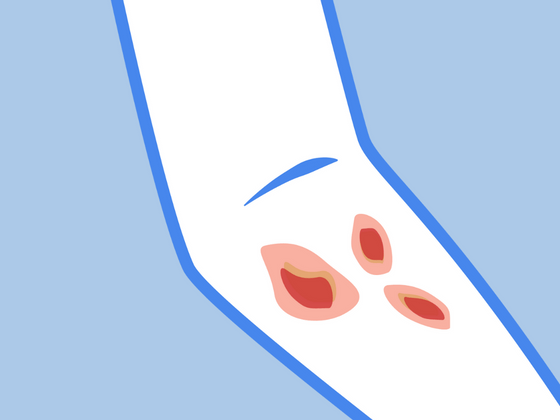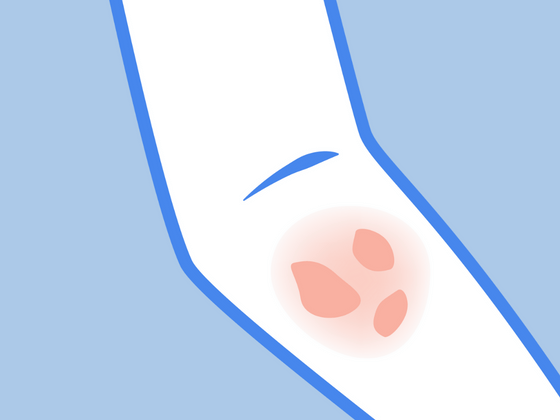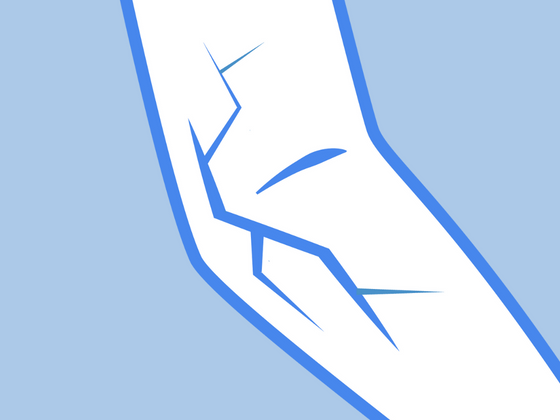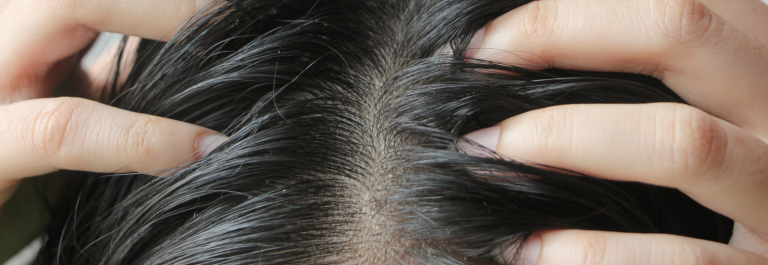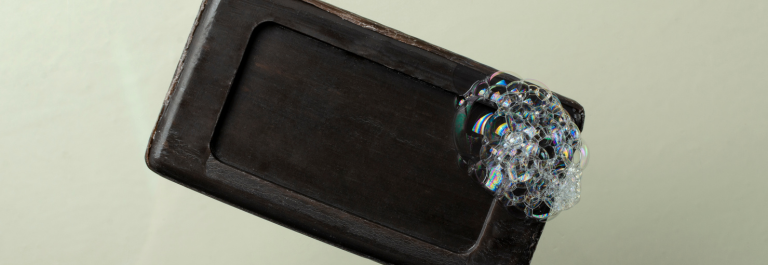Are you struggling with dandruff and scalp irritation? Dandruff is the most common - and unwelcome! - symptom of eczema on the scalp. A variety of skin conditions can cause scalp eczema. If you are suffering from a dry, inflamed, and itchy scalp, you could be struggling from psoriasis, seborrheic, atopic, or contact dermatitis.
In this blog, we will delve into the world of scalp eczema and explore everything you need to know about:
-
The symptoms of scalp eczema
-
The possible causes and triggers for scalp eczema
-
How to treat scalp eczema flare-ups naturally
Read on to find out how best to treat and manage your scalp eczema today.
Symptoms of Scalp Eczema
The main symptom of scalp eczema is skin patches on the head. These patches may be:
-
Flaky
-
Greasy or waxy
-
Red and scaly
-
Itchy or burning
-
Inflamed
-
Oozing or weeping
-
Discolored
Scalp eczema can also spread to the ear canal and cause discharge from the ear.
What Causes Scalp Eczema?
The most common type of scalp eczema is seborrheic dermatitis, a chronic dermatitis caused by an overproduction of natural oils secreted by sebaceous (oil) glands in the body. Alongside symptoms on the scalp, you may notice symptoms in other areas of oily skin, such as your ears, eyebrows and eyelids, lips, chest, and the creases of your nose.
When a baby develops scaly or greasy patches on their head, this is known as cradle cap, a type of infant seborrheic dermatitis. Cradle cap tends to clear up on its own within six months to 1 year; however, some treatments can help soothe symptoms.
Other skin conditions such as psoriasis, allergic contact dermatitis (inflammation caused by an allergic reaction to a substance), atopic dermatitis (the most common form of eczema), and folliculitis can cause symptoms similar to scalp eczema. Psoriasis and scalp eczema are the most commonly confused conditions; a tip to tell them apart is that psoriasis usually has a whiter scale and easily bleeds when scratched.
Yeast
Sometimes, seborrheic dermatitis is caused by your immune system overreacting to a yeast called Malassezia. Malassezia is usually present in the skin; however, those with skin conditions often experience an overgrowth of this yeast, which can cause an immune reaction that results in the inflammation and irritation commonly associated with eczema on the scalp.
Triggers for Scalp Eczema
Several triggers can make scalp eczema symptoms worse. These include:
-
Extreme weather (particularly cold or dry)
-
Stress
-
Illness
-
Hormonal changes
-
Harsh soaps and chemicals
-
Certain medications
-
Heavy alcohol use or alcohol-based lotion use
-
Heavy sweating
Numerous risk factors can also increase your likelihood of developing scalp eczema and seborrheic dermatitis. These include:
-
Nervous system disorders, e.g., Parkinson's, traumatic brain injuries, stroke, epilepsy
-
Obesity
-
Eating disorders
-
Depression
-
HIV/AIDS
-
Other skin conditions, e.g., acne, psoriasis, or rosacea
-
Allergies or a family history of allergies, e.g., hay fever, asthma, atopic dermatitis
Treating Scalp Eczema
We know that scalp eczema can be embarrassing and cause insecurity for some sufferers. Although there is no cure for scalp eczema, various natural treatments can reduce and prevent symptoms.
Preventing Flare-ups
Prevention techniques include:
-
Avoiding triggers and irritants (particularly if allergic contact dermatitis causes your scalp eczema).
-
Practicing good scalp hygiene.
-
Managing stress.
To practice good scalp hygiene, wash your hair regularly with a gentle shampoo and conditioner, particularly after sweating heavily, such as after a workout.
We recommend the Emily Liquid Soap Soother, a natural shampoo, and body wash specially formulated to soothe the symptoms of eczema and seborrheic dermatitis using the principles of Chinese medicine. This shampoo is fragrance and chemical-free, making it safe to use on even the most sensitive skin. To avoid further drying out your scalp, only use a quarter-sized dollop and avoid hot water and the hot setting of the hairdryer.
Reducing Eczema Symptoms
When looking for gentle shampoos and topical creams, ingredients like salicylic acid, coal tar, zinc, and selenium sulfide can help ease inflammation and reduce flaky skin and scaly scalp eczema symptoms when used two or three times a week.
The Organic Aloe Vera Soothing Spray is also incredibly effective at treating inflamed skin and scalp eczema. This cooling and refreshing spray, formulated with organic calendula and aloe vera, beats the itchy skin caused by seborrheic dermatitis and scalp eczema. Thanks to its non-greasy formula, this soothing spray is excellent for use anywhere on the body, including the scalp!
More severe eczema or seborrheic dermatitis on the scalp may require topical steroids, oral medications, and prescription treatment. Consult your dermatologist if you notice any signs of infection.
Help Soothe Symptoms of Scalp Eczema Today
Follow these tips to help you identify and soothe the symptoms of scalp eczema and seborrheic dermatitis today.

